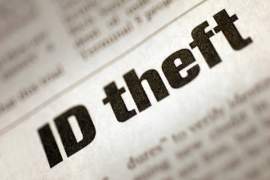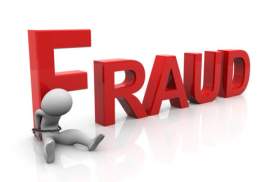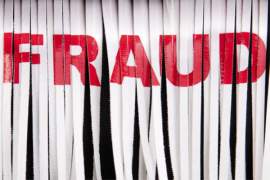
Become Certified Fraud Examiner

What is a Certified Fraud Examiner?
A certified fraud examiner is a formal title designated by the Association of Certified Fraud Examiners, a 50,000 member-based global association that is dedicated in providing formal anti-fraud educational services and training.
The Association of Certified Fraud Examiners is the world’s foremost and largest anti-fraud organization that is responsible for providing anti-fraud training and education to its prospective members. The goal of the organization and the role of a certified fraud examiner is to reduce business fraud world-wide and promote public confidence in regards to the integrity and objectivity within the profession.
What is the Role of a Certified Fraud Examiner?
As technology continues to advance and the world becomes more globalized business transactions, in all forms, are being offered to consumers and private investors at rapid rates. Although this expedited process streamlines generic business models, the threat of fraud and illegitimate business practices, through this advanced medium, unfortunately becomes easier to execute. As a result, associations and organizations, such as the Association of Certified Fraud Examiners evolve and grow in numbers to prevent such occurrences. A certified fraud examiner, in accordance with their respective association or government department, will employ techniques and conduct investigations to prevent fraud from taking place or to ensure those victims of fraud that their problems will be mitigated.
How to become a Certified Fraud Examiner?
In order to become a Certified Fraud Examiner an individual must meet the following qualifications and requirements:
The prospective applicant must be an associate member of the Association of Certified Fraud Examiners and must maintain a good standing with the organizations.
The prospective applicant must meet the minimum academic and professional requirements instituted by the Association of Certified Fraud Examiners.
The prospective applicant must pass a criminal background check and be of high moral character.
The prospective applicant, to become a certified fraud examiner, must agree to abide by the Bylaws and Code of Professional Ethics of the Association of Certified Fraud Examiners.
Generally, prospective applicant for the certified fraud examiner certification must have a minimum of a bachelor’s degree or an equivalent degree from an institution of higher education. In addition, the applicant must possess two years of professional experience related to fraud—this requirement can be substituted for each year of college.
When the individual becomes a certified fraud examiner, at least two years of professional experience in a field directly related to the deterrence and detection of fraud is required; the Association of Certified Fraud Examiners will recognize the following areas as professional experience: Auditing, Accounting, Criminology, fraud investigation, the study of laws relating to fraud and loss prevention.
Code of Ethics for a Certified Fraud Examiner:
All certified fraud examiners must abide by the association’s code of ethics:
The individual must demonstrate a commitment to diligence and professionalism in his or her duties
The individual must not engage in any illegal or immoral conduct or any activities constituted as a conflict of interest
The individual must exhibit the highest level of integrity in the performance of all professional assignments. The individual will only accept assignments if there is a reasonable expectation that the case will be completed with a sense of professionalism.
The individual must comply with lawful orders of the courts and obtain evidence to establish a reasonable basis for any opinion offered.



















